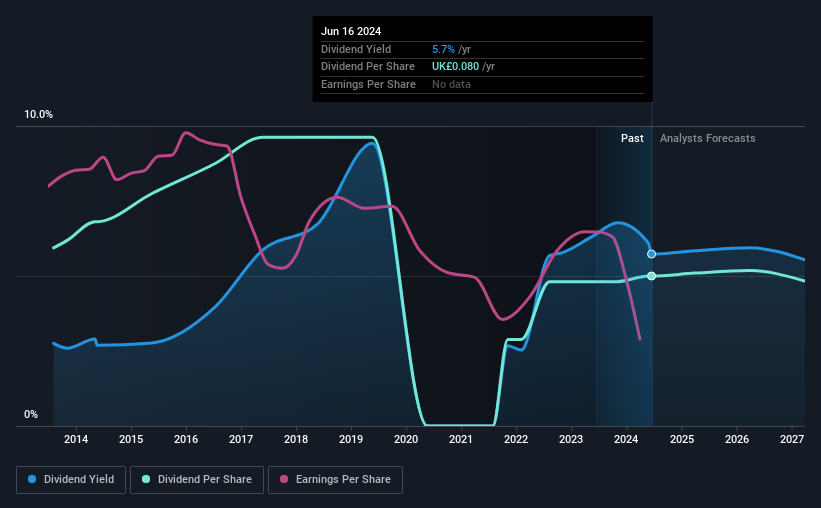BT Group's (LON:BT.A) Shareholders Will Receive A Bigger Dividend Than Last Year
The board of BT Group plc (LON:BT.A) has announced that it will be increasing its dividend by 5.6% on the 11th of September to £0.0569, up from last year's comparable payment of £0.0539. This will take the annual payment to 5.7% of the stock price, which is above what most companies in the industry pay.
While the dividend yield is important for income investors, it is also important to consider any large share price moves, as this will generally outweigh any gains from distributions. Investors will be pleased to see that BT Group's stock price has increased by 33% in the last 3 months, which is good for shareholders and can also explain a decrease in the dividend yield.
View our latest analysis for BT Group
BT Group's Earnings Easily Cover The Distributions
While it is great to have a strong dividend yield, we should also consider whether the payment is sustainable. The last dividend made up a very large portion of earnings and also represented 80% of free cash flows. This indicates that the company is more focused on returning cash to shareholders than growing the business, but we don't think that there are necessarily signs that the dividend might be unsustainable.
Looking forward, earnings per share is forecast to rise by 56.8% over the next year. If the dividend continues along recent trends, we estimate the payout ratio will be 56%, which would make us comfortable with the sustainability of the dividend, despite the levels currently being quite high.
Dividend Volatility
Although the company has a long dividend history, it has been cut at least once in the last 10 years. The dividend has gone from an annual total of £0.095 in 2014 to the most recent total annual payment of £0.08. The dividend has shrunk at around 1.7% a year during that period. A company that decreases its dividend over time generally isn't what we are looking for.
The Dividend Has Limited Growth Potential
Given that the dividend has been cut in the past, we need to check if earnings are growing and if that might lead to stronger dividends in the future. Earnings per share has been sinking by 17% over the last five years. Dividend payments are likely to come under some pressure unless EPS can pull out of the nosedive it is in. On the bright side, earnings are predicted to gain some ground over the next year, but until this turns into a pattern we wouldn't be feeling too comfortable.
The Dividend Could Prove To Be Unreliable
Overall, this is probably not a great income stock, even though the dividend is being raised at the moment. The track record isn't great, and the payments are a bit high to be considered sustainable. This company is not in the top tier of income providing stocks.
Market movements attest to how highly valued a consistent dividend policy is compared to one which is more unpredictable. Still, investors need to consider a host of other factors, apart from dividend payments, when analysing a company. As an example, we've identified 4 warning signs for BT Group that you should be aware of before investing. Looking for more high-yielding dividend ideas? Try our collection of strong dividend payers.
Have feedback on this article? Concerned about the content? Get in touch with us directly. Alternatively, email editorial-team (at) simplywallst.com.
This article by Simply Wall St is general in nature. We provide commentary based on historical data and analyst forecasts only using an unbiased methodology and our articles are not intended to be financial advice. It does not constitute a recommendation to buy or sell any stock, and does not take account of your objectives, or your financial situation. We aim to bring you long-term focused analysis driven by fundamental data. Note that our analysis may not factor in the latest price-sensitive company announcements or qualitative material. Simply Wall St has no position in any stocks mentioned.
Have feedback on this article? Concerned about the content? Get in touch with us directly. Alternatively, email editorial-team@simplywallst.com

 Yahoo Finance
Yahoo Finance 
